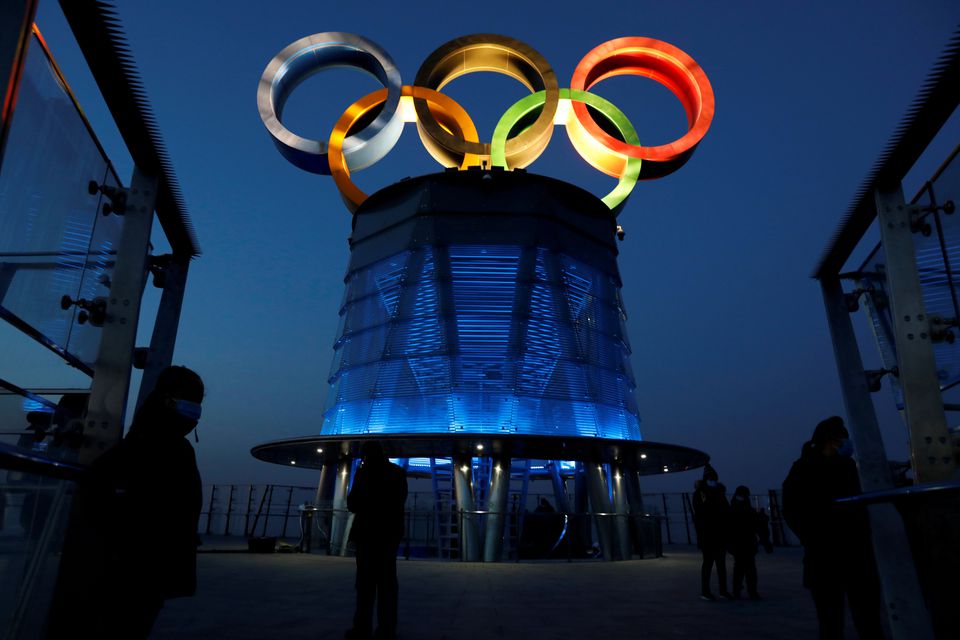For the first time since the original coronavirus outbreak closed China's borders, the country is preparing to allow foreigners to enter again in large numbers for the winter Olympics next February.
This had not seemed like it would pose much of a problem. People had become accustomed to life without many Covid restrictions, with authorities stamping out each outbreak of the virus as it came along.
But everything changed when the highly-contagious Delta variant made its way into China via an airport in the eastern city of Nanjing. In July and August, it quickly spread to dozens of cities and towns, threatening China's status of having the virus controlled.
As they had before, authorities pursued a goal of full elimination. The strategy is always the same.
Phone app health clearance is implemented in order to enter public buildings, track and trace methods go into overdrive and, as infected people are identified, their housing estates placed into lockdown. At the time of writing, this latest outbreak seems to have been reined in like those before it but officials remain on alert to guard against any new clusters threating the Games with several measures in place.
Entry and exit to the Olympic city can be controlled if needed. Transport links from high-risk areas can be suspended and travellers coming to the capital Beijing from medium risk locations could be required to have negative coronavirus tests.
With these tools, officials are hoping to have zero domestic Covid infections when the Winter Games begin. This will have a major impact on the look and feel of the Olympics.
But this does not necessarily mean no spectators. Beijing-based Canadian winter sport specialist Justin Downes has been advising Games organisers.
He says local officials have been studying how Tokyo managed coronavirus risks for athletes and the decision there to not have crowds. "The government has already said that, at least at this stage, that they are expecting full stands of spectators," he said.
"We don't know how many of those will be from overseas at this point but certainly the games will be well-supported by spectators from China: no question. In fact, all of the competition venues are already ready and they've already hosted test events".
They're all racing to build food and beverage areas, temporary stands and hotels in time. The spectacular locations will no doubt impress a global audience - from the space-age looking ski jump facility to the beauty of the ski runs. Many Olympic observers would say that, these days, it might not have made any difference.
Nevertheless, there is mounting pressure for a diplomatic boycott in February. Governments are being asked by human rights groups not to send representatives to the Olympics. This call has been supported by votes in the UK and European parliaments. However, in the end, the Olympic Games is supposed to be about the athletes.
For ordinary Chinese people - despite any criticism this country faces - many say they are excited about hosting the world's most important sporting festival again and that they are optimistic about what it will bring. One way or another, the Games is coming to Beijing again, with the coronavirus, human rights abuses, impressive transport, flash venues and spectacular scenery.
It won't be a moment in history to miss.
















